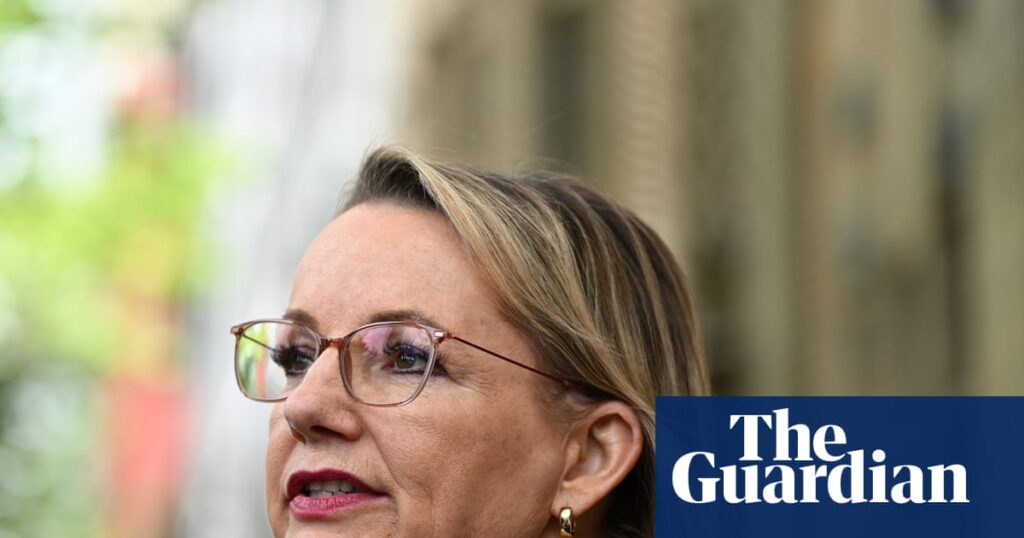
Coalition backbenchers are gearing up for an intense showdown over the net zero emissions target as pressure mounts on Sussan Ley’s opposition to clarify its stance. Speculation is rife that more MPs could follow Barnaby Joyce in resigning if the policy is not abandoned. This internal conflict underscores the growing tension within the Coalition regarding climate policy.
Liberal and Nationals MPs have been invited to remain in Canberra after the upcoming sitting week for a three-hour, closed-door debate on energy policy, including the net zero target by 2050. However, most Nationals MPs are reportedly unable to attend next Friday’s meeting due to scheduling conflicts, according to sources.
Debate Over Net Zero: A Critical Turning Point
The meeting, while not intended to finalize a position, aims to provide backbench MPs the opportunity to voice their opinions on retaining a target initially agreed upon during Joyce and Scott Morrison’s leadership in 2021. The unresolved “threshold question” of supporting or rejecting net zero has frustrated many opposition MPs, especially since it remains unaddressed over five months after their federal election defeat.
Two internal reviews are currently examining the issue: one led by Shadow Energy Minister Dan Tehan and another by the Nationals. The latter, co-led by anti-net zero advocate Matt Canavan, is expected to conclude before Christmas, potentially leading the party to abandon its commitment to the target. Such a move could complicate the Coalition’s ability to maintain net zero, given that Ley requires the Nationals’ support to pass a policy through shadow cabinet.
“The [review] process has been important post our election loss but there is a growing sense that we should resolve [net zero] soon rather than later,” said Liberal Senator Andrew McLachlan, a strong supporter of net zero.
Internal Divisions and Potential Defections
Senior Liberals believe a policy that retains net zero, albeit with caveats, could appeal to both Nationals fending off One Nation and metropolitan Liberals seeking to regain influence in urban centers. Meanwhile, Nationals MP and former leader Michael McCormack indicated that it is “fairly clear where the Nationals will go,” hinting at a likely departure from the policy.
McCormack emphasized the need for the opposition to settle the net zero issue promptly, stating, “We are haemorrhaging at the moment and it looks very, very untidy.” Tehan is expected to attend the upcoming meeting, which will provide MPs a platform to express their views on climate and energy policy.
The meeting is organized by the Coalition’s economic policy committee, led by conveners Jane Hume and Simon Kennedy, both of whom support net zero. Joyce cited the Nationals’ current support for net zero as a reason for his departure, alongside a breakdown in his relationship with leader David Littleproud.
Political Implications and Future Directions
On Monday, Joyce confirmed discussions with One Nation leader Pauline Hanson but stated that “nothing is locked in,” amid speculation of a potential defection to the far-right party. Hanson’s office declined to comment on the matter.
The Australian reported that Nationals MP Llew O’Brien, a close ally of Joyce, might also consider quitting if the party reaffirms its commitment to net zero. Meanwhile, Canavan, another Joyce ally, ruled out switching parties, asserting his dedication to the Nationals.
“It is Nats or bust for me. I will continue to fight hard against the scam that is net zero but I will not join any other party,” Canavan posted on social media.
Liberal MP Garth Hamilton, who opposes net zero, stated he would remain with the Coalition even if it recommits to the target. “I’m staying in the tent,” he said, expressing confidence that his argument would prevail.
Another Liberal MP suggested that the Coalition might eventually agree to a net zero policy “with conditions,” emphasizing the need to rebuild credibility by exposing weaknesses in the government’s approach.
“We have a lack of credibility at the moment. We have to rebuild that credibility by highlighting the weaknesses in the government’s approach. When people see that, they will be more attuned to the alternative,” the MP noted.
This unfolding drama within the Coalition highlights the complexities of balancing internal party dynamics with broader policy commitments, as the party navigates its path forward in addressing climate change.







